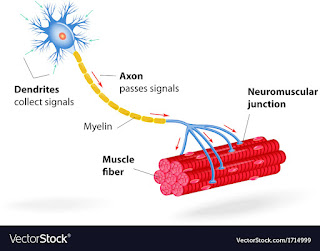Research on the use of yoga for cancer as a complementary approach to standard of care
The
diagnosis of cancer is a life-changing experience on many levels: physical, emotional,
social and financial. Stress, uncertainty, fear and the challenges of
navigating the medical system are all part of the reality of facing this
diagnosis (1). Depending on the type of cancer and the stage at which it is diagnosed, the condition may cause new symptoms and may affect
somebody’s ability to function.
Being diagnosed
and treated for cancer requires social support and a strategy to deal with
stress.
How can yoga
support patients through their treatment and after they complete it?
Research has shown that yoga can be beneficial
as a complementary therapy to support patients with cancer while they receive
their treatment and after they complete it (2, 3).
A study published in October 2020 by the
Support Care Center examined the effects of weekly yoga sessions during eight
weeks (2). Cancer patients were randomized to receive yoga (intervention group)
or to not receive yoga (control group). 173 patients were recruited and they
all had mild to severe fatigue. 84 patients were assigned to the yoga group and
88 patients were placed in the control group (no yoga).
The yoga class was done weekly for 60 minutes
and it involved physical postures, breathing techniques, meditation and
relaxation. The primary outcome evaluated the self-reported fatigue symptoms.
The secondary outcome focused on symptoms of depression and quality of life. All
the participants (both groups) had to complete a questionnaire before the yoga
sessions, and after completing the eight weeks of yoga. The control group completed
the same questionnaire during the same timeframe to be compared with the group
that received the yoga intervention.
The results showed that yoga helped to improve
general fatigue (P:0.033), physical fatigue ((P0.048) and symptoms of
depression (P less than 0.001). The quality of life also improved for the group
that received yoga (P:0.02). Women with breast cancer had a more prominent
reduction of fatigue compared to participants with other types of cancer. No
adverse effects were reported as a result of the intervention.
A review article published in 2019 by the Cancer
Journal explored the studies that had been done to assess the benefits of yoga
in patients with various cancer diagnosis (3). The researchers found 29
randomized controlled trials. Thirteen were done during cancer treatment; 12
studies were done after treatment and four trials were done during and after
treatment.
The studies
showed that the yoga was associated with improved quality of life while patients
received treatment for cancer and also after they completed their treatment. Yoga
as a mind body practice helped to relieve fatigue and stress; it decreased
symptoms of depression and improved sleep and cognition. Another effect that
was documented in some studies was the reduction of biomarkers of stress and
inflammation.
When it is done safely under adequate
supervision by certfied yoga instructors or therapists, yoga can be offered as a strategy to support patients with cancer to improve their quality of life while they receive their standard treatment and after they complete it.
References:
2) 2) Zetzl
T, Renner A, Pittig A, Jentschke E, Roch C, van Oorschot B. Yoga effectively
reduces fatigue and symptoms of depression in patients with different types of
cancer. Support Care Cancer. 2021 Jun;29(6):2973-2982. doi:
10.1007/s00520-020-05794-2. Epub 2020 Oct 7. PMID: 33026490; PMCID: PMC8062403.
https://pubmed.ncbi.nlm.nih.gov/33026490/
3) 3)Danhauer SC, Addington EL, Cohen L, Sohl SJ,
Van Puymbroeck M, Albinati NK, Culos-Reed SN. Yoga for symptom management in
oncology: A review of the evidence base and future directions for research.
Cancer. 2019 Jun 15;125(12):1979-1989. doi: 10.1002/cncr.31979. Epub 2019 Apr
1. PMID: 30933317; PMCID: PMC6541520.https
https://www.ncbi.nlm.nih.gov/pmc/articles/PMC6541520/




Comments
Post a Comment
Thank you for commenting.